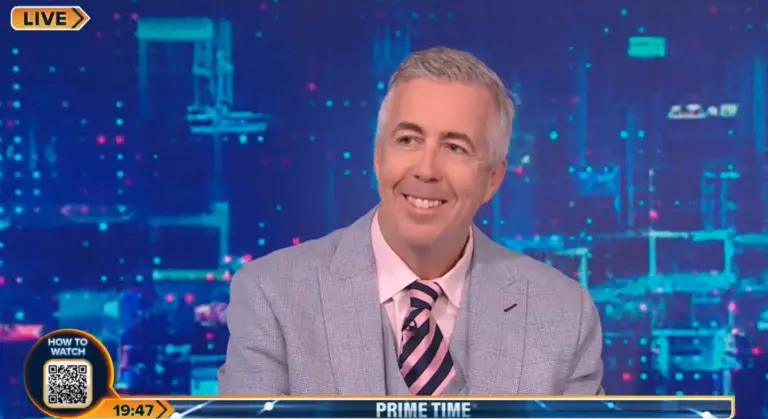After five long months in various states of lockdown, June 2021 has finally arrived, bringing with it warmer weather, hopes of lockdown restrictions lifting and most importantly of all, the publication of Bimini Bon Boulash’s debut book ‘A Drag Queen’s Guide To Life’. It of course also marks the start of Pride Month, a dedicated time which celebrates LGBTQ+ (lesbian, gay, bisexual, transgender and queer) people, culture and history as well as reminding us of milestones, solidarity and protests both past and present.
Whilst incredible progress has been made around the world, from increased media representation through to concrete policy change, there are still important strides to take – particularly in the UK, where the government has recently been accused of floundering in meeting its promise of banning conversion therapy. The UK’s first openly gay male MP, Lord Chris Smith, warned earlier this year that efforts to ensure LGBTQ+ people are represented in top government roles have stalled under current Prime Minister, Boris Johnson.
We’ve certainly come a long way since the horrific days of Section 28 (which prohibited the ‘promotion of homosexuality’ by local authorities from 1988 to 2003) and there have been some notable wins for the LBGTQ+ community in the education sector such as the new Relationships and Sex Education framework in September 2020. So how can schools, teachers and pupils continue to combat harmful and outdated beliefs this Pride Month?
Engaging with history
Channel 4’s ‘It’s A Sin’ quickly became one of the platform’s most streamed TV shows of all time when it was released in January this year. The hit drama explores the challenges faced by gay men in the 1980s, who navigate the terrifying landscape of the AIDS epidemic and widespread bigotry.
Many younger millennials and Gen Z’s took to Twitter to express their shock during Episode 4, which explores young teacher’s Ash dilemma as he is asked by a senior member of staff to remove all ‘inappropriate’ books in the school library due to Section 28. As actor Nathaniel Curtis said in an interview, “I think the fact that Section 28 is no longer talked about is just really sad… it took years for people to acknowledge what was going on in the community all around the world. It was an out-of-sight, out-of-mind trick which cost so many lives and was so dangerous.”
35-year-old teacher Craig, who teaches English at a school in east London, said in November 2019 during LGBTQ+ history month that, “Section 28 put me at a lot of risk because I didn’t get sex education that was relevant to me. I didn’t get any advice about what a healthy relationship looked like. I had no models… I now know, as a teacher, that we have a duty of care over young people to educate them. No-one stepped in to help me back then and I feel a bit angry about that to this day.”
Section 28 clearly continues to cast a shadow within education and beyond the school gates. In order to undo its harmful legacy, we must adopt a twofold approach which both addresses the UK’s shameful history in contributing to the stigmatisation of LGBTQ+ people; as well as actively seek to promote a curriculum which is inclusive and reflective of the 1.2% of people who identify as such.
Guaranteeing the safety and dignity of LGBTQ+ teachers and students alike
The charity Stonewall, which campaigns for equality across Britain, estimates that 45 per cent of LGBTQ+ pupils are bullied for their sexual orientation or gender identity in schools. Whilst a reduction from 55 per cent in 2012 and 65 per cent in 2007, school communities continue to be unsafe places for nearly half of LGBT pupils, who also report hearing homophobic slurs ‘frequently’ or ‘often’ whilst at school.
A survey conducted in May by the charity Just Like Us, which aims to provide support and empower young people to champion equality both in and outside the classroom, found that almost half of pupils who identify as LGBTQ+ suffer from depression – compared to 20 per cent of straight pupils. Chief executive Dominic Arnall has called for more schools to promote a positive message of acceptance to LGBTQ+ pupils, especially during the pandemic, by utilising Just Like Us’ free lesson plans and resources. Schools can also sign up to participate in School Diversity Week, which celebrates equality in education and offers a toolkit of resources for use across the curriculum.
Statistics for LGBTQ+ teachers are similarly bleak, with more than four in 10 reporting personally experiencing homophobia, biphobia or transphobia at work, according to teacher’s union NASUWT.
However, new initiatives like the Courageous Leaders programme, founded in 2016 with assistance from the Department for Education’s equality and diversity fund, are already working at a grassroots level to help teachers overcome prejudice and boost their confidence. Catherine Lee, deputy dean for education at Anglia Ruskin University and a mentor on the programme, says research points to the difficulty many LGBTQ+ teachers have in bringing their authentic selves to the classroom. Lee, who left teaching in 2010 after more than twenty years when a parent claimed she was a ‘bad influence’ for living with a female partner, says: “[LGBTQ+ teachers] are likely to live outside the catchment area, they don’t go to social events, they sometimes even avoid the staffroom because they don’t want to talk about what they did at the weekend.” Now in its fourth year, the Courageous Leaders scheme has seen 80 per cent of participants achieving a promotion while on the course, or within 12 months of completing it.
Ultimately, everyone studying and working in schools, from the most experienced multi-academy trust CEOs to the pupils themselves, should feel safe to be their authentic selves and live free from abuse and hostility due to their sexual orientation or gender identity. Although many Pride events have sadly been cancelled this year due to lockdown restrictions, schools can still mark the month through online or socially distanced events as well as use it as a time to reflect upon their internal policies and curriculum.




